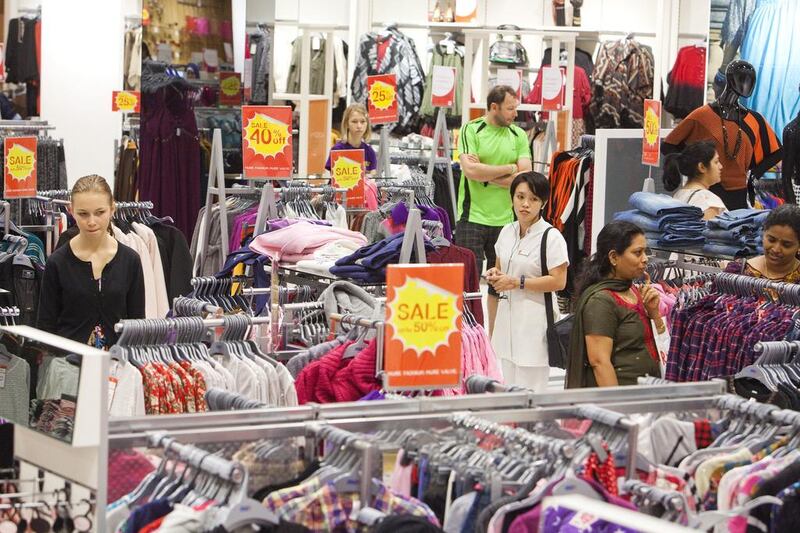The UAE Economy Minister Sultan Al Mansouri said yesterday he expected GDP to expand as much as 4.5 per cent this year amid a recovery in Dubai’s property sector and growth in non-oil related trade and industry.
In March, Mr Al Mansouri had said that the economy is expected to sustain an annual growth rate of above 4 per cent in 2013.
“We have been optimistic about what we have been seeing in the UAE in the last 18 months,” said Simon Williams, the chief Middle East economist at HSBC, based in Dubai. “It’s a growth story that has substance and it’s gaining momentum. It’s a mix of the export-orientated service sector in Dubai coming back to life and also a slower but a significant recovery in infrastructure spending in Abu Dhabi.”
GDP in the UAE is forecast to grow 3.9 per cent this year, according to the median estimate of 18 economists in the Bloomberg Middle East Economic Survey, up from 3.4 per cent in the previous quarter.
The country’s non-oil economy is forecast to expand 4.5 per cent during 2013, the fastest pace since 2008, according to data compiled by Bloomberg and IMF estimates.
In July, the IMF said that overall GDP growth would ease from 4.3 per cent last year to 3.6 per cent this year. In the non-oil economy, expansion would accelerate to 4.3 per cent, from 3.8 per cent last year as airports, hotels and shopping malls benefit from a surge in visitors and trade flows remain robust.
However, the IMF also urged caution about signs of recovery in the property market.
Dubai is recovering from a 65 per cent slump in property prices during the financial crisis. Home values rose 22 per cent in the second quarter from a year earlier, the broker Knight Frank said this month.
The emirate's rebounding property market – combined with a strong performance in trade, manufacturing, transport and finance – lifted the emirate's GDP to more than 4 per cent in the first half of the year, estimate officials.
Euler Hermes, the credit insurance company, forecasts growth in the UAE to rise by 3.5 per cent this year and 4 per cent in 2014.
“The prospects are very positive,” said Ludovic Subran, Euler Hermes chief economist. “We believe there is a focus on growth for 2013 to 2014. On top of this you have an extremely good alignment of factors, which is a nice current account surplus, net current creditor status and reserves.”
Investor confidence in Dubai’s debt has also improved. The cost to ensure the emirate’s dollar debt against default for five years has dropped 20 basis points this year to 205, according to data compiled by Bloomberg.
The cost plunged 225 basis points, or 2.25 percentage points, last year.
“Non-oil growth should spearhead activity this year, but hydrocarbon output is also expected to contribute positively,” Giyas Gokkent, the chief economist at National Bank of Abu Dhabi, told Bloomberg.
Mr Gokkent said crude oil output is up by 4.6 per cent this year, compared to his original forecast for a decline.
The HSBC United Arab Emirates Purchasing Managers’ Index was 54.5 in August, unmoved from July’s reading. It means the improvement in operating conditions in the non-oil private sector has now stretched to one month short of four years. The 50 mark divides expansion from contraction.
Dubai's benchmark DFM General Index for stocks has soared 67 per cent this year, while Abu Dhabi's measure climbed 45 per cent after both bourses were upgraded to emerging market status by the index provider MSCI.
* With Bloomberg News
With additional reporting by Tom Arnold
business@thenational.ae





